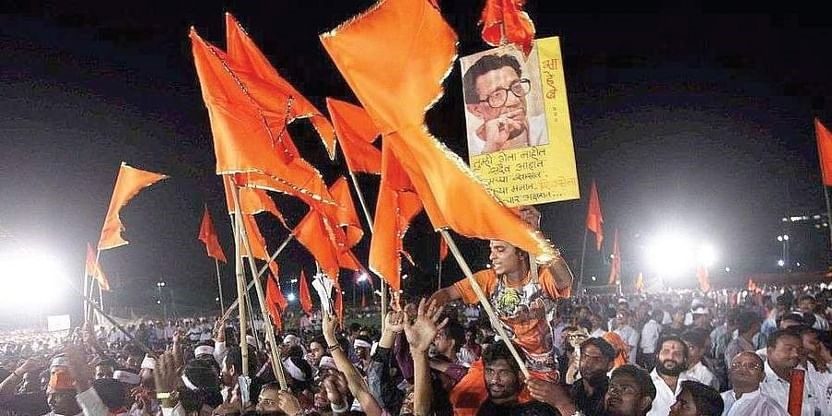
From Raj to Rane to Shinde: Shiv Sena's long tryst with rebellion

Founded on June 19, 1966, by Bombay-based cartoonist late Balasaheb Thackeray, the Shiv Sena has been a grassroots-oriented political force since its inception.
By establishing shakhas and appointing shakha pramukhs in Marathi-dominated neighborhoods in Mumbai in the following years, the party established a strong connection with its voter base at the ground level.
Sainiks, banding together and raising their voice in unison against issues ranging from unemployment and wanting preferential treatment for the Marathi Manoos, have been a force to reckon with when they take to the streets, forcibly shutting down shops and calling for bandhs.
However, given all its might and strength, the 56-year-old Shiv Sena has witnessed sporadic rebellions within the party, much before the current Eknath Shinde-led dissidence.
Chhagan Bhujbal
Also read: What next in Maharashtra? Here are 8 scenarios that could play out
Chhagan Bhujbal, who now serves as a cabinet minister in the Maha Vikas Aghadi government, was one of the first to go against his own party back in 1991.
At the time, the OBC leader, who joined the party in the 60s, was a Sena MLA who hailed from Mumbai’s Mazgaon region. He soon went on to become Bal Thackeray’s “blue-eyed boy.”
Sena, at the time, had 52 MLAs in the state assembly – of which Bhujbal claimed the support of 17 to form the B team of Shiv Sena – after he had a difference of opinion with Thackeray over the appointment of Manohar Joshi as the leader of Opposition in the assembly.
Later that year, Bhujbal, along with a few other MLAs, went on to join the Congress under Sharad Pawar and became a minister.
When Pawar split from the Congress and formed the NCP, of which he is now chief, Bhujbal went along with him.
Bhujbal also got had Thackeray arrested in 2000, when he (Bhujbal) was the deputy chief minister, for inciting communal hatred during the 1992-93 riots.
Also read: Why did Eknath Shinde and his men go to far-off Guwahati?
Raj Thackeray
Bal Thackeray’s nephew Raj Thackeray’s resignation from the Shiv Sena in 2005 sent shockwaves through the political ecosystem in Maharashtra.
Raj was considered by many loyal sainiks within the party, to be the heir to the throne. But Bal Thackeray favoured his son, Uddhav Thackeray.
When he quit the party in 2005, Raj told reporters he blamed the “lack of democracy” within the party as his reason for quitting. He said all he had asked for was “Respect from Matoshree,” but instead all he got was “insult and humiliation.”
In 2006, Raj founded the Maharashtra Navnirman Sena (MNS). In the 2009 assembly election, the party won 13 seats in the 288-member assembly. Ever since, the party has been in a downward spiral – managing to bag just a single seat in the 2019 assembly election.
Narayan Rane
He started off as a shakha pramukh and then went on to become the Sena’s first CM in 1999 (in a BJP-Sena government).
His exit from the Sena in 2005 was triggered, after he got into a longstanding feud with Uddhav and challenged his leadership after he (Uddhav) was named as the party’s executive president in 2003, at a convention in Mahabaleshwar.
He was accused of “anti-party activities” and removed from the Sena in 2005 by Bal Thackeray himself after he (Rane) alleged that tickets and posts were sold in the party during elections.
Soon thereafter, Rane went on to join the Congress with a handful of Sena lawmakers – but quit the party in 2017 after claiming that he was promised the CM’s post.
He went on to form his own political outfit, the Maharashtra Swabhiman Paksh, but later declared his support to the BJP and formally merged his party with the BJP in 2019.

